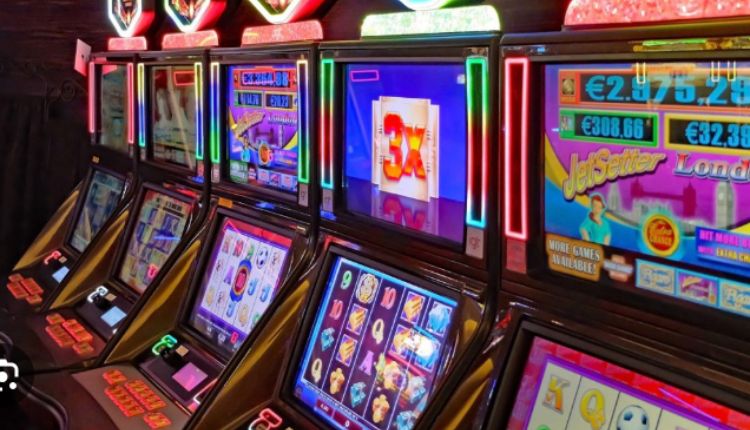Slot is a game in which players use a lever or button (either physical or on a touchscreen) to spin reels. If they match a winning combination, they earn credits based on the paytable.
It’s important to remember that a winning payout is based on luck. You should not waste your money chasing payouts you believe are due.
Symbols
The symbols in a slot are the unique images, characters, or items that appear on a video slot machine’s reels and are often tied to the game’s theme. These symbols offer different payouts depending on how many of them appear in a row and may also trigger bonus games, free spins, respins, or even a progressive jackpot!
Standard slot symbols include high ranking card faces, numbers, and card suits such as hearts, spades, diamonds and clubs. These are used in all types of modern slot machines and are usually low paying symbols. However, these symbols can be combined with special symbols to increase your chances of winning.
Scatter and bonus symbols are another unique feature that can be found in many slot games. They do not need to land on a payline in order to award a win, and they can sometimes trigger special bonus rounds or free spins. These symbols can also be combined with standard symbols to increase your odds of winning. A popular example of this is the Walking Wild feature in Yggdrasil’s Temple Tumble Megaways game, where the Wild symbol will move one reel further to the right with each new spin.
Payouts
When you play a slot, it’s important to know what to expect from a machine’s payouts. While it’s true that the house always wins in the long run, you can improve your chances of winning by choosing a game with a high payback percentage. You can also increase your chances of winning by playing a slot with low volatility, which provides frequent wins but may have smaller prizes.
Payouts in a slot depend on the symbols in the game, but they can be influenced by factors such as the number of paylines and the betting range. A pay table will give you an overview of all the possible symbol combinations that could result in a win, including the types of multipliers and scatters used in the game. In addition, the pay table will also note whether the game includes bonus symbols or not. A hand pay is a partial payout made by an attendant or at an exchange point, and occurs when the coin hopper has been depleted.
Odds of winning
When it comes to playing slots, odds of winning are a key factor in the game. Odds can be calculated in many different ways, including fractions, decimals, and percentages. Moreover, understanding how to calculate odds can help you develop a sound strategy and avoid common mistakes.
For example, let’s say you toss a coin and it hits heads. This does not change the odds of the next flip, which will still be a 50/50 chance of heads or tails. Similarly, the chances of hitting a winning combination in a slot are also random and cannot be changed by any outside forces.
There are, however, some things you can do to increase your odds of winning. For instance, you can choose to play higher-denomination games or move between machines. However, remember that it is important to know your limits and never chase losses. In addition, choosing a game with a high RTP and low variance rate will increase your odds of winning.
Regulations
The regulations of a slot are in place to ensure that the games are fair. They also help to protect players from unscrupulous casino employees and keep the casinos in compliance with government taxing rules. These laws are especially important for brick-and-mortar casinos, which must comply with them in order to avoid legal action from gambling regulatory bodies.
Although the primary goal of slot players is to collect a payout, they must first land matching symbols on a payline to qualify for a prize. The amount of the winning combination determines the size of the payout. The machine’s payout percentage can vary from game to game, and the higher the win, the less frequently it occurs.
The Worldwide Airport Slot Guidelines (WASG) are the unsung heroes of the air transport industry. Governments that align their slot rules with this global standard benefit from increased connectivity, strong competition, route diversity, and efficient use of scarce airport capacity.
